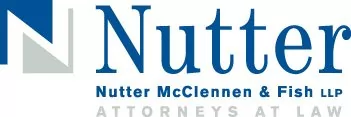Most developers doing work in Massachusetts are already aware that a local board or committee can't hold a public meeting without a quorum (50% plus one) of its members. But, many may not be aware that there is another requirement, which is often overlooked until it causes big problems: only members who attend every session of a public hearing are eligible to vote on that matter.1
For hearings that open and close in one night, this isn't a problem because if you have a quorum of members, all of them are eligible to vote. But for those complicated public hearings that span many months and multiple meetings, it is not unusual to have a few members miss a meeting along the way. Board members who miss a meeting for any reason are automatically ineligible to vote on a permit. This effectively turns their vote into a "no" vote, and the chances of getting a subdivision approval, special permit or order of conditions become a lot harder. In the worst-case scenario, if too many members miss a meeting, there is no way you can get your permit even if they all show up on the last night of the hearing and vote "yes." If the "voting quorum" has been lost, any vote taken is invalid and the applicant will have to start the process over. When a board member is absent, the usual course is to continue the hearing to a future date to preserve that member's ability to vote, but at what cost in time and money?
In 2006 the Massachusetts legislature enacted a law to provide some relief to the applicant when a board member misses a meeting. The law, Section 23D of Chapter 39 of the General Laws ("Section 23D"), was approved in May of 2006. Section 23D permits the board member to vote despite having missed a meeting if the member certifies in writing that he or she has examined all evidence received at the missed session, including an audio or video recording (or transcript) of the session. While helpful, Section 23D is not a perfect remedy. Before a board can take advantage of Section 23D, the municipality must accept the new statute by vote of its town meeting or city council. Moreover, the board member may only miss one meeting; if the member misses more than one, that member's vote is invalid.
To make the law more effective, members of Nutter's Land Use group are working with the National Association of Industrial and Office Properties (NAIOP) to amend the law to remove the requirement of municipal acceptance and the one missed meeting limit.
We will keep you informed of our progress on the amendment but, for now, you should continue to pay close attention to the attendance of board members at public hearings for local permits, and it may be that when a member is absent, you will still need to consider requesting a continuance to the next scheduled meeting. However, with the enactment of Section 23D, it is possible to keep the hearing process on schedule, saving time and money.
Footnotes
1 This has been the law since at least 1983 when the Appeals Court decided Mullin v. Planning Bd. of Brewster, 17 Mass.App.Ct. 139, 456 N.E.2d 780 (Mass.App. 1983). In 2004, the Superior Court extended the application of the Mullin decision to cover conservation commissions in addition to planning and zoning boards. Jeffries v. Commission of Milton, 18 Mass.L.Rptr. 56, Not Reported in N.E.2d, 2004 WL 1541861 (Mass.Super. 2004). In both of these cases, the permit granted by the board or commission was invalidated by the court, and the applicant was forced to reapply for the permit.
This update is for information purposes only and should not be construed as legal advice on any specific facts or circumstances. Under the rules of the Supreme Judicial Court of Massachusetts, this material may be considered as advertising.


